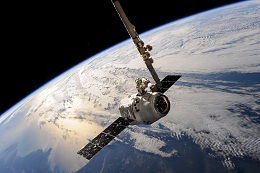12 September 2018
 An engine expert from the University of South Australia (UniSA) will spend the next three years working on a $3 million international project to build Australia’s first launch pad to send satellites into space.
An engine expert from the University of South Australia (UniSA) will spend the next three years working on a $3 million international project to build Australia’s first launch pad to send satellites into space.
UniSA engineer Dr Saiful Bari has been tasked with helping to develop two high thrust engines – one that can launch satellites into orbit before melting and the other that can be continually re-used.
The second challenge will be a world first if it comes to fruition.
The Responsive Access to Space (RAS) project, led by defence technology company DefendTex, includes researchers from UniSA, RMIT, University of Sydney, the Defence Science and Technology Group, Germany’s Universitat de Bundeswehr and commercialisation company Innosync Pty Ltd.
Dr Bari will lead the UniSA team in the injection modelling and air-fuel mixing phase to develop a flight-ready rotating detonation engine.
“We are looking at two options,” he says. “The first is a cheaper, much smaller engine that can launch small satellites before melting. It is much smaller in size than a normal launch pad. Currently, we must hire launch pads from the US or Russia because Australia doesn’t have this capability,” he says.
“The second option is to develop an engine which can be launched and returned to Earth, so it can be used a number of times. To date, nobody in the world has been able to do that, despite intensive international research efforts in the US, Russia, China and Japan.”
Several benchtop rotary detonation engines have been built in these countries and sustained several seconds of operation before crashing to the Earth, Dr Bari says.
The RAS project has been awarded $3 million under the fifth round of the Cooperative Research Centre Projects (CRC-P) Program and attracted more than $10 million of cash and in-kind contributions from industry and university stakeholders.
The investment builds on the Federal Government’s $41 million commitment over the next four years to establish an Australian space industry, worth an estimated $12 billion by 2030.
Caption: Photo by John Jones
Media contact: Dr Saiful Bari +61 8 8302 3439 email saiful.bari@unisa.edu.au
Candy Gibson mobile 0434 605 142 email mailto:candy.gibson@unisa.edu.au




